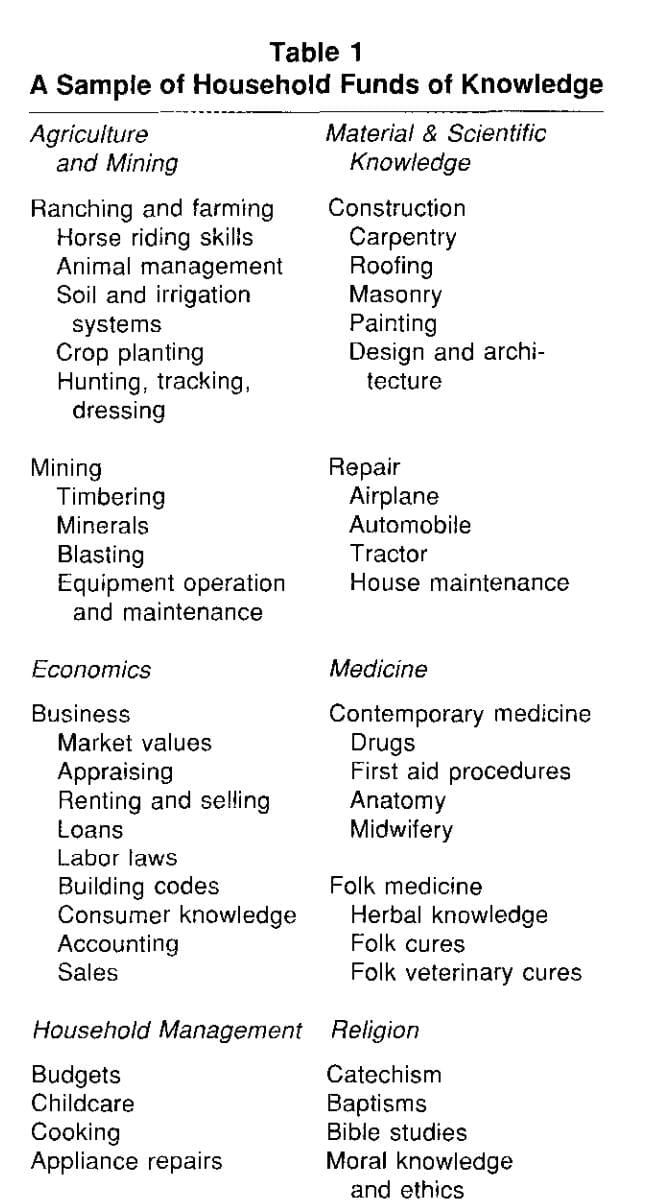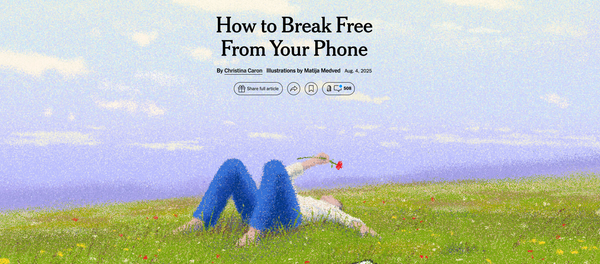Learning Theory: Funds of Knowledge

Here's a teaching tradition you probably don't know about, at least by name. The funds of knowledge tradition builds on the ideas we've been playing with this week. It's both constructivist (build on existing knowledge) and liberatory (e.g., blurs lines between teacher and student).
The authors of the seminal studies (Luis C. Moll , Cathy Amanti, Deborah Neff, Norma Gonzalez) were ethnographic researchers and teachers who spent time in homes of working-class Mexican families in Tucson, AZ.
The basic insight of the study is that kids in these homes were (of course!) learning richly and deeply in their family contexts, but that the white, middle-class norms that dominate classrooms weren't learning from or even effectively connecting with the material, cultural, economic, and other "funds" of knowledge and skill that were especially meaningful and supportive to these young people. (See graphic for examples.)
Moreover, the style of learning tended to be quite different at home vs. at school:
'[Family and community-based learning] networks are flexible, adaptive, and active, and may involve multiple persons from outside the homes; in our terms, they are "thick" and "multi-stranded," meaning that one may have multiple relationships with the same person or with various persons ... Thus, the "teacher" in these home based contexts of learning will know the child as a "whole" person, not merely as a "student," taking into account or having knowledge about the multiple spheres of activity within which the child is enmeshed ...A second, key characteristic of these exchanges is their reciprocity ... [R]eciprocal practices establish serious obligations based on the assumption of confianza (mutual trust). which is reestablished or confirmed with each exchange, and leads to the development of long-term relationships. Eachexchange with relatives, friends, and neighbors entails not only many practical activities ... but constantly provides contexts in which learning can occur—contexts, for example, where children have ample opportunities to participate in activities with people they trust.' (p. 136, emphasis added)
I think there's a lot that churches as a whole, and not just Christian formation leaders, can take away from the insight that we learn to shape more inclusive, trusting, nurturing communities when every member's gifts can shape and contribute to what happens in the community. And there's a real imperative to do so in transparent, intentional ways when the cultural and socio-economic norms of a dominant group(s) are setting the norms of the community.
How can we invite people in congregations to "bring home to church" in ways that help church connect with and celebrate the diverse funds of knowledge of the community? And how can we do it in responsible ways that don't exacerbate inequity?
Food sharing is almost always the first example that comes up for folks, but there are so so many more. I'd love to hear yours!



